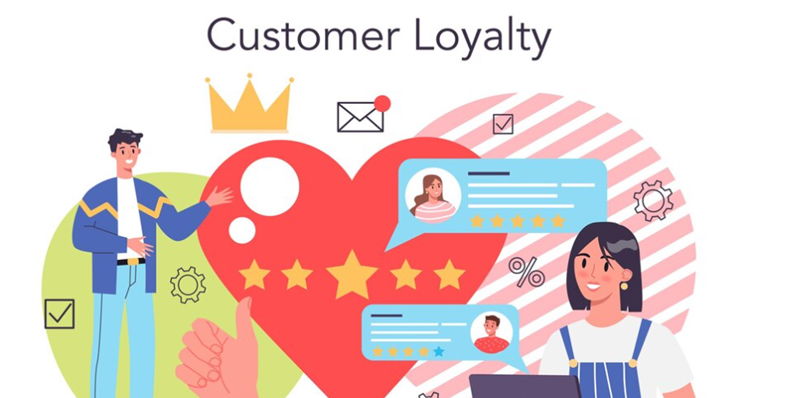In today’s competitive business landscape, customer loyalty has become a vital component for success. Customers who are loyal to your brand are more likely to make repeat purchases, spend more money, and recommend your products or services to others. In this article, we will explore the key factors that drive customer loyalty and how businesses can implement strategies to foster and nurture it.
The Role of Emotions in Customer Loyalty
Emotions play a significant role in customer loyalty. Studies have shown that customers make purchasing decisions based on how they feel about a brand or product, rather than solely on rational thinking. Positive emotions, such as trust, happiness, and satisfaction, can create a strong bond between the customer and the brand, resulting in long-term loyalty.
Personalization to Build Customer Loyalty
One of the crucial aspects of building customer loyalty is personalization. Customers want to feel valued and recognized as individuals. By tailoring interactions and experiences to their specific needs and preferences, a brand can make customers feel like they are part of a community and not just another number. Personalization can be achieved through various methods such as personalized recommendations, customized offers, and targeted marketing campaigns.
Rewards and Incentives as Motivators for Loyalty
Rewards and incentives have proven to be powerful motivators for customer loyalty. By providing rewards for repeat purchases, referrals, or engagement with the brand, customers feel appreciated and valued. Loyalty programs that offer exclusive benefits such as discounts, freebies, or early access to new products can incentivize customers to choose your brand over competitors.
Building a Community Feel for Enhanced Loyalty
Creating a sense of community among your customers is a highly effective way to boost customer loyalty. When customers feel like they belong to a community of like-minded individuals, they develop a stronger attachment to the brand. This can be achieved by hosting events where customers can network and share experiences, setting up online forums or social media groups for discussions, or encouraging customers to share their experiences with your brand on platforms like review websites or social media.
Exceptional Customer Service for Loyalty
Exceptional customer service is paramount in building customer loyalty. The way you treat your customers at each touchpoint can greatly impact their perception of your brand. Providing top-notch customer service that exceeds expectations and makes customers feel valued is key. Promptly addressing and resolving issues, actively listening to feedback, and going the extra mile to ensure customer satisfaction can create a positive customer experience that leads to long-term loyalty.
Creating Loyal Advocates
Customers who receive exceptional service are more likely to become loyal advocates for your brand. These advocates not only remain loyal themselves, but also actively recommend your products or services to others. Word-of-mouth recommendations are incredibly powerful and can significantly influence the purchasing decisions of potential customers. By consistently delivering exceptional customer service, businesses can nurture a network of loyal advocates who become ambassadors for their brand.
Building customer loyalty is crucial for the long-term success and growth of a business. By understanding the role of emotions in loyalty, implementing personalization strategies, utilizing rewards and incentives, fostering community engagement, and providing exceptional customer service, businesses can cultivate a loyal customer base that continues to choose their brand over competitors. Remember, customer loyalty is earned through consistent effort and delivering value at every customer interaction.

